This was my second posting for the Chicago Reader blog post, although it might have been the first one I wrote (and the second to have been edited) — I can no longer remember for sure. –J.R.

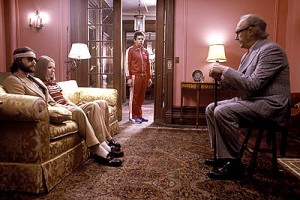
Film history that is open to the present
Tue, Nov 14, 2006 at 4:07 PM
Last month Alexander Horwath, director of the Austrian Film Museum, sent me a press release about an ambitious and audacious retrospective he’s presenting throughout November entitled “Notre Musique,” devoted to “forty major works of fictional and documentary cinema made between 2000 and 2006.” “Film museums are often — and justifiably — viewed as places where an awareness of the historic foundations of contemporary cinema can evolve,” he begins. “Yet a reverse perspective is equally important — an approach to film history that is open to the present.” His selection, he adds, “is not so much influenced by the best-known or `most-discussed’ films of recent years but rather by the unbroken capacity of cinema to bear witness to life on this planet [his emphasis] — not just in the sense of documentation but also as an illumination of circumstances that habor a potential for change.” What he’s put together, in short, is a group of films that are supposed to bear witness, politically and responsibly, to the present moment — a daring gesture if one considers Jacques Rivette’s plausible statement in a Cahiers du Cinéma roundtable over 40 years ago, that it’s virtually impossible for a critic to know the long-term value of a film when it first appears. Read more
From the Chicago Reader, July 27, 1990. –J.R.
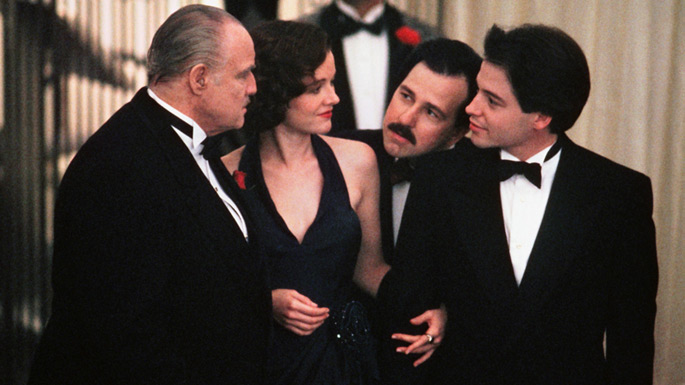
THE FRESHMAN
*** (A must-see)
Directed and written by Andrew Bergman
With Matthew Broderick, Marlon Brando, Bruno Kirby, Penelope Ann Miller, Frank Whaley, Maximilian Schell, and Bert Parks.
“The overwhelming attractiveness of the screwball comedies involved more than the wonderful personnel. It had to do with the effort they made at reconciling the irreconcilable. They created an America of perfect unity: all classes as one, the rural-urban divide breached, love and decency and neighborliness ascendant. –Andrew Bergman, We’re in the Money (1971)
Most reviews of The Freshman have understandably focused on Marlon Brando. After all, everybody knows Brando, while hardly anyone is familiar with Andrew Bergman, the writer-director. But a movie as outlandish as this needs to be seen in some sort of context if one is going to make any sense of it, and it seems to me that Bergman is more important to this context than Brando is. It was his script, after all, that lured Brando into his first major role in a decade.
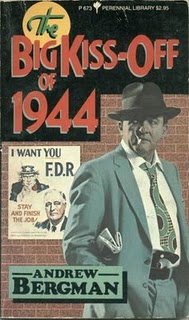
Bergman was born in Queens, the son of a New York Daily News radio and TV columnist named Rudy Bergman, and was an early fan of TV comics like Ernie Kovacs, Victor Borge, and Bob and Ray. Read more
This appeared as the lead article in the May-June 1974 issue of Film Comment — a somewhat pared-down revamping of my entry about Stroheim for Richard Roud’s belatedly published Cinema: A Critical Dictionary (New York: The Viking Press, 1980), and, if memory serves, the longest of my several contributions to that long out-of-print collection. — J.R.
Second Thoughts on Stroheim
by Jonathan Rosenbaum
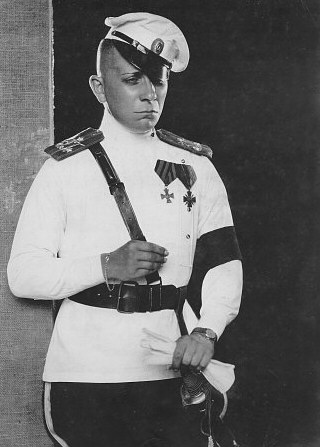
Preface
Total object, complete with missing parts,
instead of partial object. Question of degree.
— Samuel Beckett, “Three Dialogues”
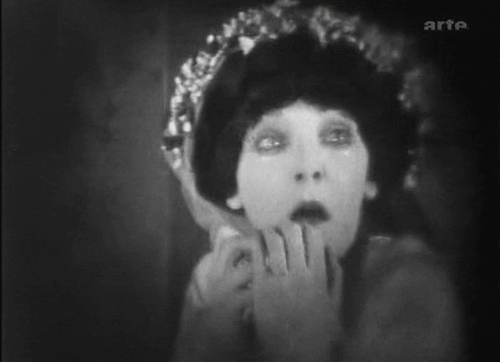
Two temptations present themselves to any modern reappraisal of Erich von Stroheim’s work; one of them is fatal, the other all but impossible to act upon. The fatal temptation would be to concentrate on the offscreen image and legend of Stroheim to the point of ignoring central facts about the films themselves: an approach that has unhappily characterized most critical work on Stroheim to date. On the other hand, one is tempted to look at nothing but the films — to suppress biography, anecdotes, newspaper reviews, reminiscences, and everything else that isn’t plainly visible on the screen.
Submitting Stroheim’s work to a purely formal analysis and strict textural reading of what is there — as opposed to what isn’t, or might, or would or could or should have been there — may sound like an obvious and sensible project; but apparently no one has ever tried it, and there is some reason to doubt whether anyone ever will. Read more






